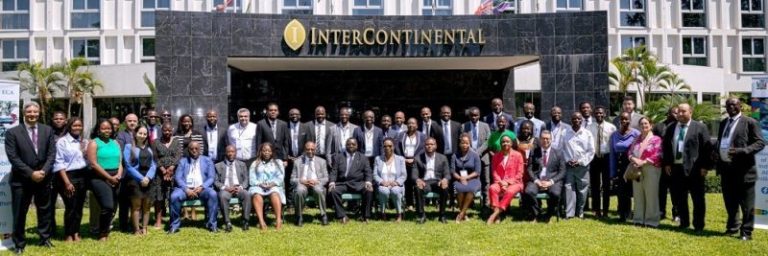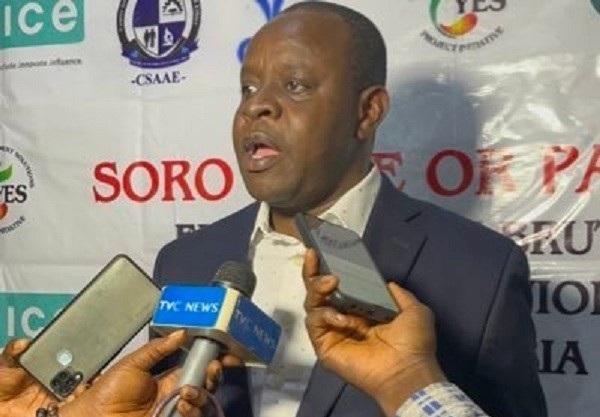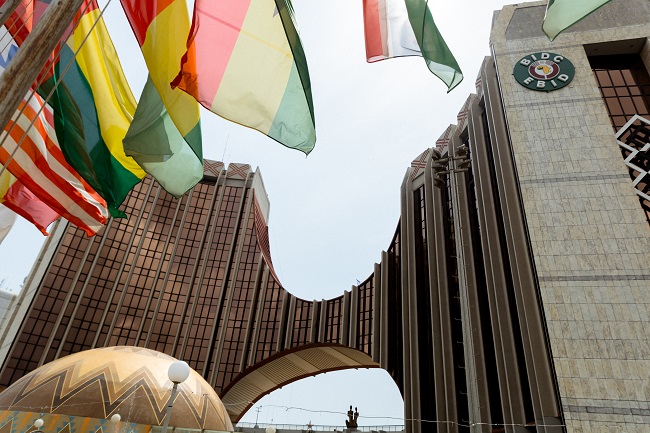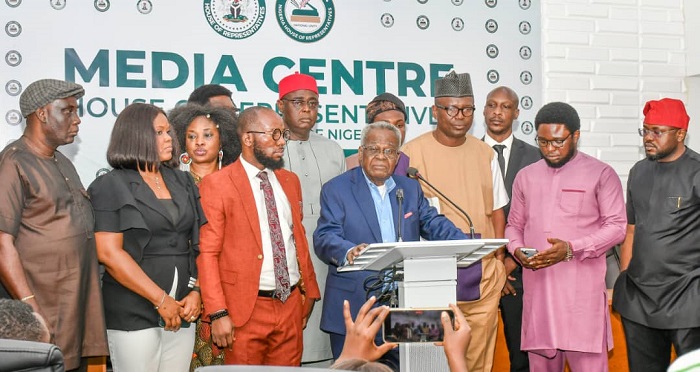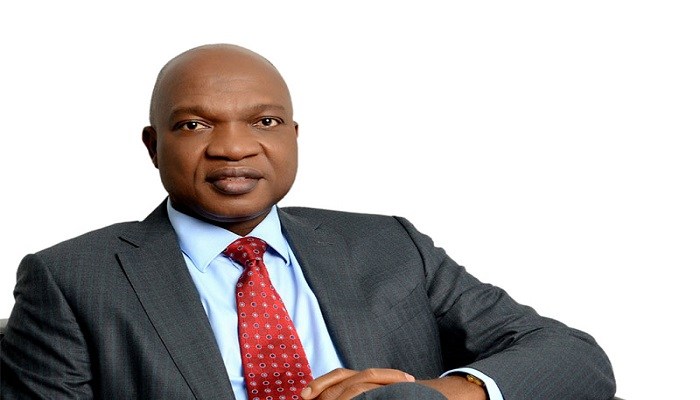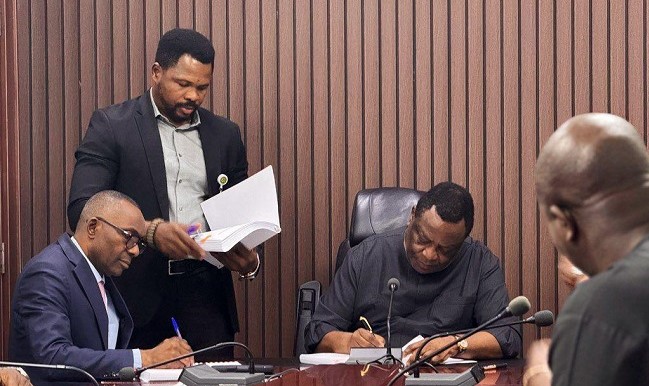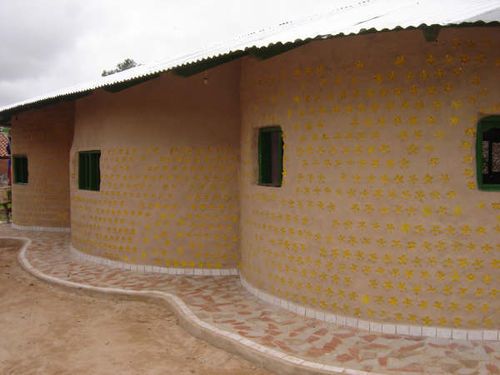Meeting on Thursday, December 12, 2024, in Lusaka, Zambia, on the occasion of the “High-level Policy Dialogue on the Development of Regional Automotive and Electric Mobility Value Chains” organised by the ECA, representatives from Morocco, the DRC and Zambia agreed on the broad outlines of a joint roadmap for the development of value chains bringing together the three countries.

Senior officials and private sector representatives from Botswana, Lesotho, Malawi, Namibia and Zimbabwe, who also participated in the high-level dialogue, identified opportunities to expand automotive component production within their existing capacities and strengthen their presence in regional automotive value chains.
Jointly organised by the ECA Offices in North and Southern Africa, the meeting aimed to explore strategic priorities for the development of regional value chains (RVCs) in the automotive and electric mobility (e-mobility) sectors, assess the potential for partnerships and refine regulatory frameworks to create an enabling environment for their development.
At the end of the work, the participants agreed on the need to integrate the project’s partnership framework into the national public policies and sectoral plans of their respective countries in order to ensure their alignment with national development priorities. They also recommended the signing of a memorandum of understanding in 2025 and the inclusion of Morocco in the Zambia – DRC Special Economic Zone.
For its part, the ECA will support these interventions through the finalisation of the roadmap, the implementation plan and the partnership framework with a view to submitting them to member countries for validation. The UN organisation will also be responsible for producing strategic studies, facilitating exchanges between the various stakeholders concerned, and supporting the capacity building of SMEs in the automotive sector.
“The African automotive industry is expected to grow by 40%, reaching $42.06 billion by 2027. At the same time, the global shift to electric mobility presents transformative opportunities, with the global electric vehicle market expected to reach $46 trillion by 2050,” said Adam Elhiraika, Director of the ECA Office for North Africa.
The African Continental Free Trade Area (AfCFTA) can play a key role in enabling Africa to seize this opportunity, Mr. Elhiraika stressed.
According to a soon-to-be-published ECA study, the removal of tariff barriers under the agreement can provide a significant boost to intra-African trade in intermediate products with trade increases of nearly 85% for vehicles and transport equipment, 46% for transport services, and 28% for energy and mining products by 2045.
Enabling Africa to position itself in competitive automotive value chains requires mapping countries that can supply competitive intermediate components and putting in place policies and arrangements that can encourage investment and enable the development of a viable automotive sector, said Eunice Kamwendo, Director of the ECA Office for Southern Africa, in a speech read on her behalf.
Today, challenges remain in terms of policy frameworks, harmonization and standards for the formulation of CVRs in the automotive sector, particularly in Southern Africa. These gaps – which impact the ability to achieve economies of scale – affect aspects such as rules of origin, sectoral incentives required under special economic zone regimes and the integration of related production of key components, Ms. Kamwendo added.
“Our government has waived all taxes on electric vehicles except VAT. We have also eliminated VAT on locally produced electric vehicles. In addition, our government has committed to ensuring that at least 50% of its vehicle fleet will be electric vehicles. This policy change is not just a financial incentive; it is a statement of our commitment to fostering a green economy and promoting sustainable industrialisation,” said Zambian Minister of Commerce, Industry and Trade, Chipoka Mulenga, in a speech read on his behalf.
Organised following a three-day workshop under the theme “Development of the regional electric mobility value chain (DRC – Morocco – Zambia)”, the High-level Policy Dialogue on the development of regional automotive and electric mobility value chains brought together representatives of governments, the private sector, experts and representatives of development organisations from eight countries.
The work was an opportunity to look at the issues of the value chains of electric mobility (e-mobility) and automobiles, the priorities for the harmonisation of policies in Africa, existing financing opportunities, the methods of developing ecosystems for research and development, and collaboration between the public and private sectors – know-how, sustainable industrialisation and competitiveness of SMEs.
It is now estimated that automobile demand in Africa will reach 10 million vehicles per year by 2030. Furthermore, the global market for electric vehicles (EVs) could reach $46 trillion by 2050.
With around 30% of the world’s reserves of cobalt, lithium and copper, essential minerals for electric vehicle batteries, Africa is strategically positioned to capture a share of this market, thereby strengthening its sustainable development and facilitating the implementation of its environmental objectives.
The development of African automotive and electric mobility value chains will, however, require coordinated efforts from member countries to establish an appropriate ecosystem, with the reduction of regulatory divergences, the development of essential infrastructure including energy and suitable charging stations, adequate workforce training and awareness-raising work among the public to encourage the adoption of electric vehicles.

